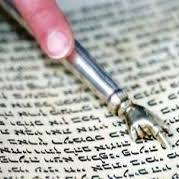
News

Justice is an absolute cosmic value
Rev Joseph Matzner
Reverend of Our Parents Home
The opening sentences of our parsha enjoin us to appoint judges in all our cities, towns and villages “and they shall judge the people with righteousness”.
The Torah gives the clear impression that justice has to be easily accessible at all times and that justice is an absolute value, a universal cosmic value.
From the Torah it becomes clear that justice is Divine and belongs to the world of Kedushah, holiness. Justice has its seat in the Holy Temple and must be seen as a service to G-d.
The Jewish people know in every fibre of their being the unconditional necessity of justice as one of the pillars upon which the world stands, that they are the people who submits themselves willingly every year to Divine judgement, as they have done for the past 3 500 years.
We ourselves decide and proclaim the Day of Judgement, we even fix the actual date of our judgement. The Beth Din Shel Maala endorses the date and broadcasts this great and awesome event to the highest of heavens.
And even as we invite our national yearly trial, so do we have fixed times for our own daily trial.
These are the three daily prayers. These are the moments when our little siddur invites us to a whole series of trials and introspections and reassessments. Our friend the siddur invites us to a daily mini-trial and leaves us with the wonderful feeling that it is good to be tried by the ultimate standards of truth!
The parsha describes the four sources of authority in Israel namely the Shofet – judge; the King – Melech; the Kohen – priest; and the Navi – prophet. Each has his own specific duties and none can normally assume the duties of the other.
The judge is trained in Torah law and judges accordingly. Only the great Sanhedrin can sometimes judge according to the universal law (Bnei Noach laws) which continues to exist beneath the Sinai law.
The King is in charge of national security in times of peace and in times of war. “The King assembles the whole nation.” He can at times invoke the more severe Noachide laws in times of emergency.
The Navi is the national sensor. He is able to discern what the people are doing; he is sensitive to any national deviation. He chastises rank and file.
The Kohen has the best defined role. He is bound by the rules of Temple service and all matters of purity and impurity and is in constant touch with the people.
The Great Sanhedrin is the repository of the oral law. It too is permitted to put a halacha in parenthesis for a limited time for tikkun olam – for the benefit of the nation as a whole. The Sanhedrin never acts arbitrarily. It makes takkanoth for the good of the people for all future generations.
According to Rambam, the laws of the Talmud have the force of Sanhedrin because the great majority of the people accepted those laws and embraced the sages who gave them over.
A final word: The first letters of Melekh, Shofet, Kohen, Navi, form the word Mishcan.
May we all be inscribed in the Book of Life.




